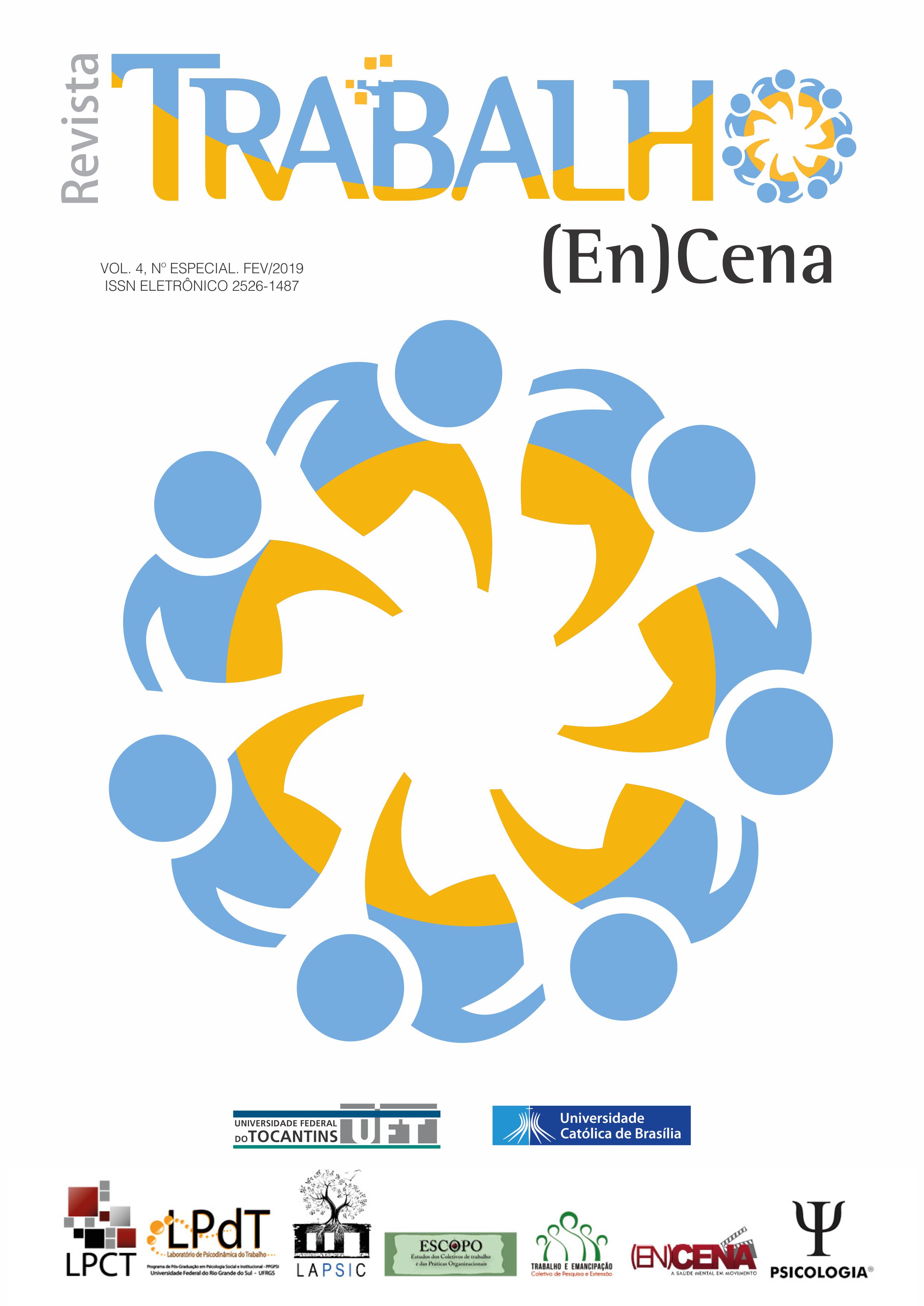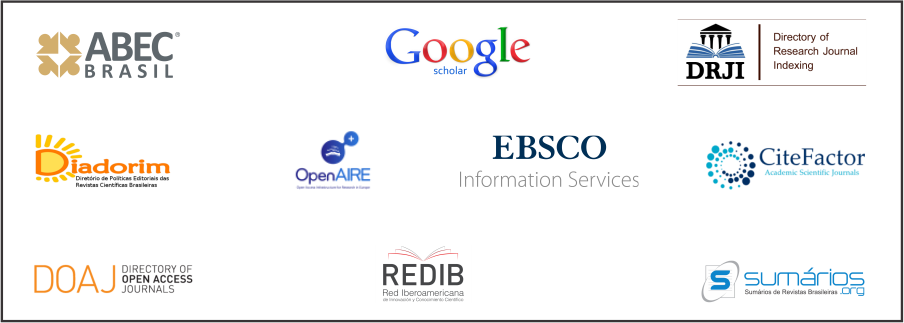Towards a model comprehensive of the conditions related occupational psychological well-being
DOI:
https://doi.org/10.20873/2526-1487V4NEspecialP110Abstract
The objective of this study is to analyze the conditions linked with work psychological welfare of resident workers in dependency of the autonomous city of Buenos Aires and the greater Buenos Aires. Took a first subsample not simple accidental probabilistic 150 subjects of the autonomous city of Buenos Aires (45%) and the greater Buenos Aires (55%). 46% is male and 54% female, with an average age of 32.25 (DT = 10. 254; Median = 31 years; Max. = 66 years, min. = 18 years).In terms of the level of education, 27% had an up to full tertiary level, the rest were University. Were administered the questionnaire of occupational well-being (Blanch et al., 2010); Scale of conditions of work (Blanch, 2005, adaptation of Ferrari, 2005-2007); Socio-labour climate scale (Blanch, 2005, adaptation Ferrari, 2005-2007). In addition, social variables are relieved. Found a significant direct relationship between the social climate and some dimensions of psychological well-being labour. Also, found significant direct relations between the conditions of work and this construct. This means a first step in the construction of an explanatory model of occupational psychological well-being in the study population.
Downloads
Published
How to Cite
Issue
Section
License
Os direitos autorais dos artigos publicados pela Revista Trabalho EnCena permanecem propriedade dos autores, que cedem o direito de primeira publicação à revista. Os autores devem reconhecer a revista em publicações posteriores do manuscrito. O conteúdo da Revista Trabalho EnCena está sob a Licença Creative Commons de publicação em Acesso Aberto. É de responsabilidade dos autores não ter a duplicação de publicação ou tradução de artigo já publicado em outro periódico ou como capítulo de livro. A Revista Trabalho EnCena não aceita submissões que estejam tramitando em outra Revista. A Revista Trabalho EnCena exige contribuições significativas na concepção e/ou desenvolvimento da pesquisa e/ou redação do manuscrito e obrigatoriamente na revisão e aprovação da versão final. Independente da contribuição, todos os autores são igualmente responsáveis pelo artigo.






